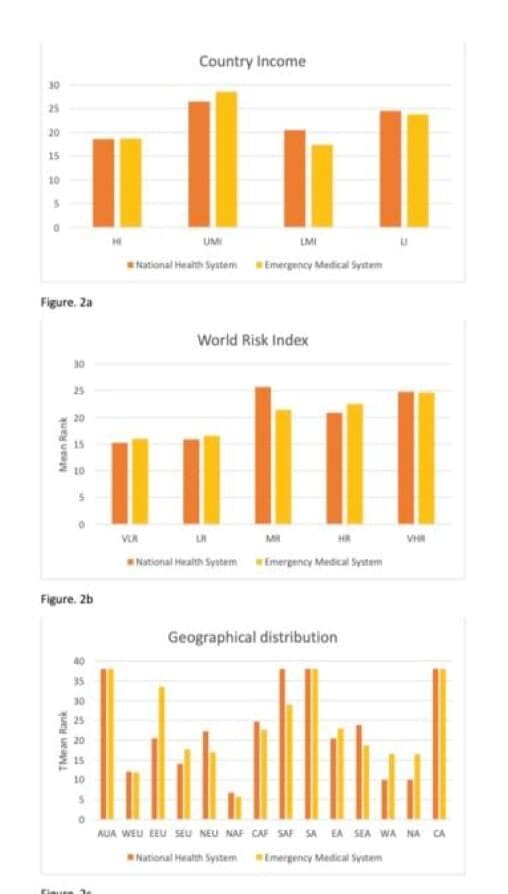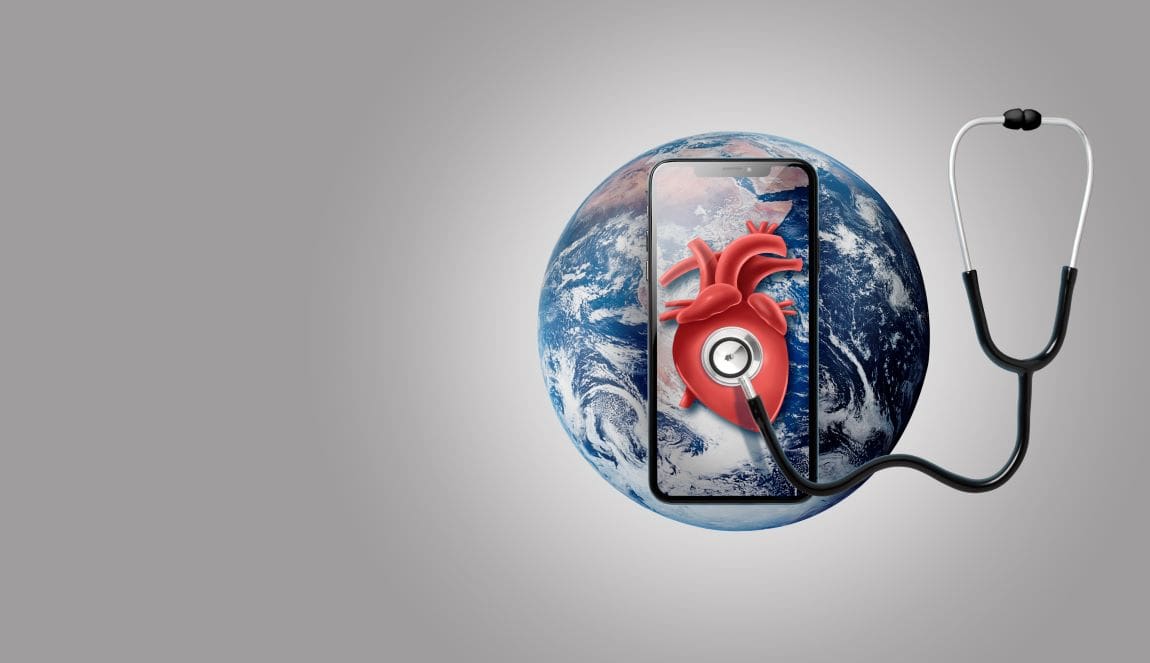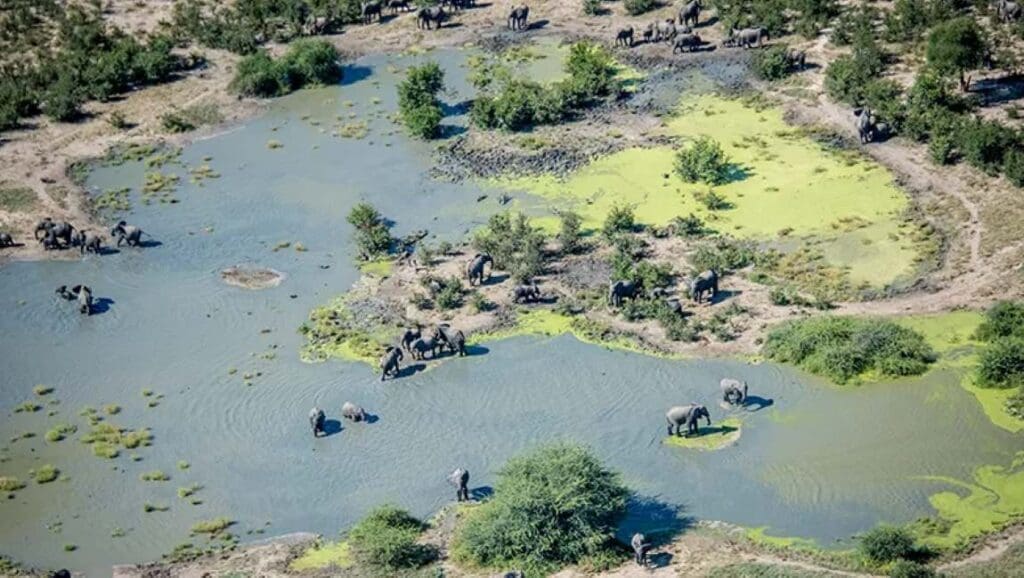As climate change progresses, international experts in emergency medicine are raising alarms about the increasing strain on emergency medical services worldwide. At the European Emergency Medicine Congress (EUSEM 2024), experts highlighted that only a few countries have assessed the full extent of these impacts or developed actionable plans to address them.
During a session titled “Climate change is a health emergency too,” Luis Garcia Castrillo, a retired professor of emergency medicine, discussed findings from a recent survey conducted by EUSEM.
This survey, which included responses from 42 focus groups in 36 countries across 13 United Nations regions, reveals a concerning lack of preparedness among global emergency medical services. Despite assessing the potential impact of climate change on health systems at an average severity level of 7 on a scale of 0 to 9, only 21% of respondents reported that their countries had conducted any assessments on its effect on emergency services, and a mere 38% had taken measures to prepare for its consequences.(1)
“It is surprising how awareness is lacking in so many countries, as well as among emergency medicine societies,” remarked Castrillo. “Some countries do not seem to be concerned at all. Yet this is going to affect rich and poor countries alike.”

Identifying risks and regional differences
The study(2) found that climate-related events such as pollution, flooding, and heatwaves are the top three concerns for emergency medicine professionals, with cold spells, wildfires, and vector-borne diseases – like malaria – also considered significant threats.
Dr. Roberta Petrino, director of the Emergency Department at Ente Ospedaliero Cantonale in Switzerland, a co-author of the report, and co-chair of the session, noted: “Emergency medical professionals are very worried about the effects of climate change on the care they provide. Our report shows that colleagues feel it’s an important problem around the world, although specific issues vary from one region to another.”
Higher-income countries reported concerns primarily around heatwaves, cold spells, and wildfires, which they linked to increased patient volumes. They emphasized the need for strategic planning and education to prepare emergency personnel for these events. In contrast, lower-income countries focused on the anticipated impacts of climate change on food production and health service disruptions.
The survey further identified regional variances in climate-related risks.
Australasia, Eastern Europe, South Asia, Sub-Saharan Africa and Central America reported the highest anticipated impacts, citing extreme weather events, food shortages, and climate-related diseases as their primary concerns. Meanwhile, Northern European countries and regions in the Eastern Mediterranean voiced heightened concerns over population displacement and disruptions to essential services.
Emergency medical services strained by climate impacts
Using the WorldRiskIndex, a statistical model that assesses countries’ vulnerability to disasters, researchers were able to correlate increased risks with the likelihood of disruptions to emergency medical services.
Dr. Petrino highlighted the urgent need for improved awareness: “Much greater awareness of this is needed at national and international levels among policymakers, healthcare providers, healthcare professionals, and the general public.”
The report also noted that climate change’s impact on emergency services is set to increase significantly. The most common anticipated effects include a surge in patient numbers and strain on medical infrastructure, compounded by disruptions in the supply chain for medical resources.
The survey’s respondents called for enhanced strategic planning, with a particular focus on bolstering education and training for emergency medical staff. According to the findings, health systems in countries like Egypt and Nigeria may experience milder impacts, whereas Sub-Saharan African nations expect severe consequences.
EUSEM’s findings underscore the pressing need for emergency medicine systems to adapt to climate change. In response, the Society is establishing a permanent working group dedicated to monitoring and addressing the effects of climate change on emergency medical services. This group will engage with policymakers and institutions to advocate for improved climate resilience across health systems globally.
“As we head towards the end of a year that has seen records broken for the planet’s hottest days, action cannot come quickly enough,” said Dr. Petrino. “Climate change is having an impact on all countries, rich and poor, regardless of geographical region. The world faces a climate change emergency, and our medical services face an emergency too.”
The research, due to be published in the European Journal of Emergency Medicine, illustrates that while awareness of climate change’s potential threats to emergency medicine is growing, meaningful action remains limited. As this health crisis escalates, experts warn that without concerted action from governments and healthcare providers, emergency medical services will struggle to keep pace with the challenges posed by a changing climate.
Journal Reference:
(1) ‘The results of the survey on awareness and preparedness for climate change’ presented by Luis Garcia-Castrillo, in the session “EM Day Campaign 2024: climate change is a health emergency too!”
(2) Roberta Petrino, Luis Garcia-Castrillo, Graziano Uccheddu, Letizia Meucci, Roberta Codecà, ‘Awareness and preparedness of health systems and emergency medicine systems to the climate change challenges and threats: an international survey’. To be published soon in the European Journal of Emergency Medicine (2024).
Article Source:
Press Release/Material by EUSEM
Featured image credit: Freepik




